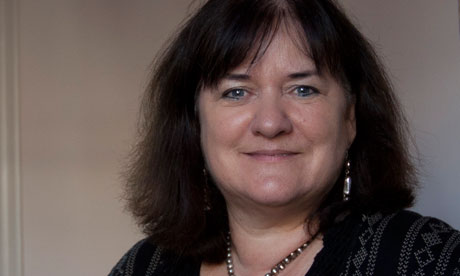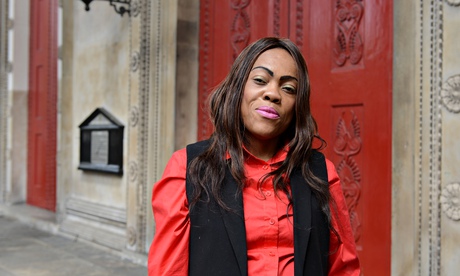Jenny Edwards thinks of the organisation she leads, Homeless Link, as an "early warning system" for homelessness. The signals she is getting from the umbrella organisation's 500 members, which run homeless services across England, are that youth homelessness is on the rise.
"Tensions in families who are coming under economic pressures, parents being more called to account for the behaviour of their older children, and the withdrawal of the education maintenance allowance are some of the reasons why teenagers could be leaving home in greater numbers with nowhere to go," she says.
Moreover, the young people her members are seeing in foyers, hostels or day centres, appear to have more complex issues. This could be because mental health services that would once have helped them have been axed, she says.
Homeless Link provides guidance and support for charities working in the sector, such as Crisis and Shelter. It also delivers a monthly briefing to the government on homelessness trends. In addition to the worrying prospect of more young people sleeping on the streets, it has recently reported a disturbing rise in women using homelessness services – "We're not sure why that is, but there is a big shortage of services for women," says Edwards – and pointed out that early signs show the economic downturn is starting to swell the ranks of homeless people. "It's not in large numbers yet, but you get a lag from a recession. It takes time before people run out of options," she warns.
In parallel to rising demand for services, 68% of Homeless Link members have experienced cuts to services, and Edwards talks of services being re-tendered at lower rates, which means charities have to reduce costs by laying off staff, reducing night cover in hostels and turning people away.
Desperate times call not for despair but for doing things differently, says Edwards, 56, who describes herself as a resolute optimist. So, using the Olympics as a catalyst, Homeless Link is galvinising councils, charities, faith groups and the government to end rough sleeping by the end of 2012.
While previous governments have had rough sleeping initiatives and targets that successfully cut street homelessness by three-quarters, a persistent hardcore remained – "One man until recently lived on the streets for 47 years," says Edwards. That hardcore has since been joined by people from eastern Europe and other foreign nationals. Six years ago, Homeless Link identified that one in five people using homelessness day centres were migrants. They now account for half of the hundreds of people sleeping on London's streets, for example.
"The reason we still have rough sleeping is that we'd never dealt early enough with the different problems people have that makes them sleep rough," says Edwards.
Her solution is No Second Night Out (NSNO). "Our definition of a country free from homelessness, is that nobody lives on the streets, and when they are helped off there is somewhere right for them to go so they are not drawn back [into homelessness] when things go wrong in the future," Edwards explains. "What this looks like is that no one spends more than one night on the streets."
Since April, NSNO has been running as a pilot project in inner London. It delivers a 24/7 emergency service for rough sleepers and is funded by the mayor and the government. Boroughs' own homelessness outreach teams or the public call an emergency number for a dedicated street rescue service, which will remove a newly identified rough sleeper and take them to a centre where they are offered an alternative to homelessness. Those offers range from accommodation to being reconnected with the area or country they have come from, or being put in touch with a service such as drugs rehabilitation.
The emergency service is run by London charity Thames Reach's street rescue team and the advice hub is run by the homelessness charity Broadway. In NSNO's first three months, it identified 272 new rough sleepers, of which 68% found an alternative, compared with 12% of rough sleepers who did not use the service. And fewer than one in 10 people found accommodation by NSNO were on the streets again three months later, Edwards adds.
Little wonder perhaps that the government has co-opted NSNO as its own vision for ending rough sleeping, and is now calling on every council in England to adopt the NSNO standard and to implement a similar project in their area. Doesn't such vindication present problems for an independent charity, especially as some of its members this month gave a damning verdict of the government's housing policy, which, they pointed out, has led to a rise in both statutory homelessness and the use of temporary accommodation after a five-year fall?
"If you want someone to own the fact that there's a solution to the problem that you've put to them you have to let them own it," responds Edwards. "It was in our manifesto. But I'm happy for lots of people to say it was their idea."
She is careful, however, to ensure a balance between statutory and charitable funding and earned income. Government money accounts for less than half of Homeless Link's funding pie. And she acknowledges that a new, government-funded three-year £20m transition fund to be distributed to homeless charities looking for new solutions to tackle homelessness, could tip that balance.
"It's our job to 'speak truth to power'. That's what our absolute value is," she insists. "Receiving the transition fund, there's a risk of people perceiving that we'll become beholden to government, so we've been extra sure to sign up to things critical of [government] policy."
Edwards is this week meeting Lord [David] Freud, minister for welfare reform, to voice her concerns about a proposed "family cap" on the amount of housing benefit that families will be able to claim under proposed welfare reforms.
"If there are teenagers in a large family and you have a cap on the amount the family can claim, and therefore the size of the house they can live in, then who is going to have to go? The teenagers of course," she says. "Sheer, plain, common sense says the welfare reforms are going to put loads more people at risk of homelessness," adds the erstwhile campaigner for nuclear disarmament and the arts.
Homeless Link successfully lobbied housing minister Grant Shapps earlier this year to exempt young people leaving homeless hostels from future housing benefit changes that will force 25- to 35-year-olds to share accommodation. Youth homelessness last rose significantly in the 1980s after the then Conservative government withdrew benefits from 16- and 17-year-olds.
"It's when you don't think through the consequences, like closing long-stay mental institutions and introducing a migration policy without a safety net, that homelessness invariably rises," says Edwards. "All we can do is do what we do as cleverly, strategically and tactically as possible."











